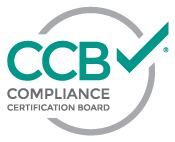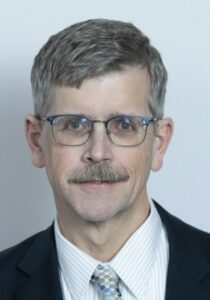 Get to Know Us: HLI Advisory Board
Get to Know Us: HLI Advisory Board
The Health Law Institute’s success is enhanced by the expert guidance we receive from our HLI advisory board
Meet Martin Stillman, MD, JD
Mediation and Conflict Resolution Officer, HCMC
Assistant Director, Institute of Professional Worklife, HCMC
Director, Provider Wellness and Retention, Department of Medicine, HCMC
Associate Professor of Medicine, University of Minnesota Medical School
Tell us about your background and what inspired you to get involved with mediating conflict in healthcare?
Having attended law school before medical school, I’ve had a longstanding interest in how law interplays with medicine. However, my discovery of the role that effective conflict resolution can have within healthcare developed over the last 10 years. In various leadership positions within Hennepin County Medical Center (HCMC), I was faced with challenging conflict and became interested in advancing my skills in this area. That led to completing mediation training to become a qualified neutral for the state, developing and teaching conflict resolution courses myself, and starting a position within HCMC to serve as the hospital mediation and conflict resolution officer. In this role, I assist with directly mediating conflict, teaching others how to approach and resolve conflict, and serving as a “conflict navigator” for healthcare leaders who would benefit from a collaborative approach to seeing ways through challenging situations.
What do you enjoy most about your work?
I love seeing patients, and I also love my mediation work, which has roots in the law. When I developed the Conflict Resolution and Facilitation Training program (©CRAFT) for health care providers, I saw the positive difference this can make in professional satisfaction, provider wellness, and ultimately, patient care. I have had course attendees later share with me how the healthy and productive ways they’ve learned to resolve conflict has reduced stress both in and out of work, and I’ve found this to be meaningful and rewarding. I also enjoy seeing how this work has universal appeal and value and affords me the opportunity to work with health systems across the country.
In what ways have you seen law and medicine intersect?
Being clinically active in direct patient care, my familiarity with intersections of law and medicine tends to relate to more direct patient-facing activities. Specifically, this has included issues of patient rights and informed consent, end-of-life decisions and care, mental health and competency, medical ethics, and medical malpractice and risk management. I continue to stay an active learner within the law and medicine space through continuing legal education coursework, and we are fortunate to have exceptional educational resources in the Twin Cities including Mitchell Hamline’s Health Law Institute. I also appreciate learning from fellow Health Law Institute Advisory Board members who represent and reflect the impressively wide-ranging areas that exist where health and law interact.
Do you have any advice for new attorneys entering the legal field?
My thoughts are to try and maintain as many pieces of work that you can that bring you fulfillment and joy. I know this may be easier said than done, especially when starting out. In the medical field, having at least 10% of your work be something you’re passionate about can reduce your risk of burnout. I would imagine this research translates to other fields as well, including law.
 Healthy Dose of Good News
Healthy Dose of Good News
Meet Norman Means, MD, FCAP, DABFM
4L MHSL Student
Chief Medical Officer, Kwajalein Hospital, United States Army Garrison-Kwajalein Atoll
Tell us about your background and how it influenced your decision to go to law school.
My undergraduate education was a bit of a contradiction; I have a liberal arts degree in sciences. I suppose my whole career to date has reflected that. When I got to the University of Chicago, I had to wrestle with the choice of career paths. I have always been intrigued by both the hard determinacy of science and the “fuzzy” indeterminacy of the law. One leads to just one “correct” answer; the other leads to “It depends…” I can best analogize this as enjoying putting the jigsaw puzzle together, and then enjoying viewing the painting that the puzzle depicts. Ultimately, I had to choose between pursuing a medical career or a legal career. Medicine won out, but the fascination remained.
Henry Ford once said, “Anyone who stops learning is old, whether at 20 or 80. Anyone who keeps learning stays young.” As I wasn’t ready to get old just yet, I constantly sought new learning opportunities with which to challenge myself. So once my daughter went to law school, it rekindled my dormant interest in law. With the increase in distance legal education opportunities, such as Mitchell Hamline’s blended-learning program, this meant that a rural practitioner like me could now attend law school without having to quit my day job. One day a link to the LSAT registration site popped up while I was reading the news online, and I registered for the test on a whim.
Learn more about Norman Mean’s background.
What stands out to you as the most valuable aspects of your law school education so far?
Meeting people from all walks of life has been most enjoyable. I’ve learned so much from the different perspectives to which I’ve been exposed at Mitchell Hamline. Not that I necessarily agree with all my faculty and classmates on every issue, but everyone’s opinion is worthy of respect and careful consideration as one constantly seeks to refine one’s own weltanschauung.
The biggest hurdle I faced transitioning into law school is also worth mentioning. I had to learn how to shift out of my scientific brain into my legal brain to analyze questions. What might be an interesting anecdote requiring further confirmation for a scientist could be definitive evidence for a jurist. Not that one approach is superior to the other; the difference merely reflects the difference between the cold factual basis of science as opposed to the more “squishy” reality of human interrelationships within which the law operates.
What do you have planned after graduation?
After taking the bar exam, the first thing I plan to do is to start studying for an MBA. After that, I plan to do “fun” work, meaning something mentally challenging where I can effect positive change. I just accepted a position as the new chief medical officer of the Kwajalein Hospital of the United States Army Garrison-Kwajalein Atoll in the Republic of the Marshall Islands. Fun and challenging, with great snorkeling, too!
What are you most proud of?
My children. They are all pursuing their lives and are each successful in their own unique way. Furthermore, they all voted in this past election. I know that might seem a trifle to some, but I see it as reflecting that they have matured and are now poised to assume their roles as the next generation of leaders, maintaining our society and its values. The torch has passed, and that makes me a proud dad of four great kids!
We welcome the opportunity to highlight you in one of our upcoming newsletters, and encourage any students or alumni to email us!
 Mitchell Hamline Team Competes at National Health Law Moot Court Competition
Mitchell Hamline Team Competes at National Health Law Moot Court Competition
Three Health Law Institute certificate students competed in the prestigious National Health Law Moot Court Competition at Southern Illinois University Simmons Law School in November. This competition is recognized as one of the premier opportunities for law students across the nation to hone their written and oral advocacy skills in the area of health law and policy. Students from all over the country come together to argue complex cases, challenging their advocacy skills and knowledge of critical health law topics.
This year’s team, coached by Joe Van Thomme ’09, consisted of Crystal Lawson, Emma Galtes, and Sakeenah Dieujuste (pictured above from left to right). These talented students represented Mitchell Hamline with impressive skill and dedication.
We would like to extend our appreciation to Crystal, Emma, and Sakeenah for representing Mitchell Hamline in such a professional manner. A special thank you also goes to Coach Joe Van Thomme for his support and guidance, helping to prepare our students for such a competitive event.
Faculty & Staff News
Congratulations to the HLI faculty and staff on their accomplishments in September, October, November, and December! Follow the links to view their most recent presentations, publications, events, panels, and media highlights.
Health Care Compliance Certificate Program
Gain a competitive advantage in one of the hottest job markets by obtaining your Health Care Compliance Certificate through our 11-14 credit program, completely online! More information and application details for J.D. students and for working professionals.
Accepting applications for the August 2025 cohort.
Health Law Institute’s Rankings
The Health Law Institute has been awarded an ‘A’ by preLaw. Read more on page 38-39 in their Back to School 2024 issue.

U.S. News & World Report
Mitchell Hamline School of Law’s Health Law Institute was ranked nationally by U.S. News & World Report for 2024.
Subscribe to the newsletter
This quarterly newsletter includes information about upcoming events, courses, certificates, and student, faculty, and alumni news. It’s a great way to stay up to date and involved with Mitchell Hamline School of Law’s Health Law Institute.



